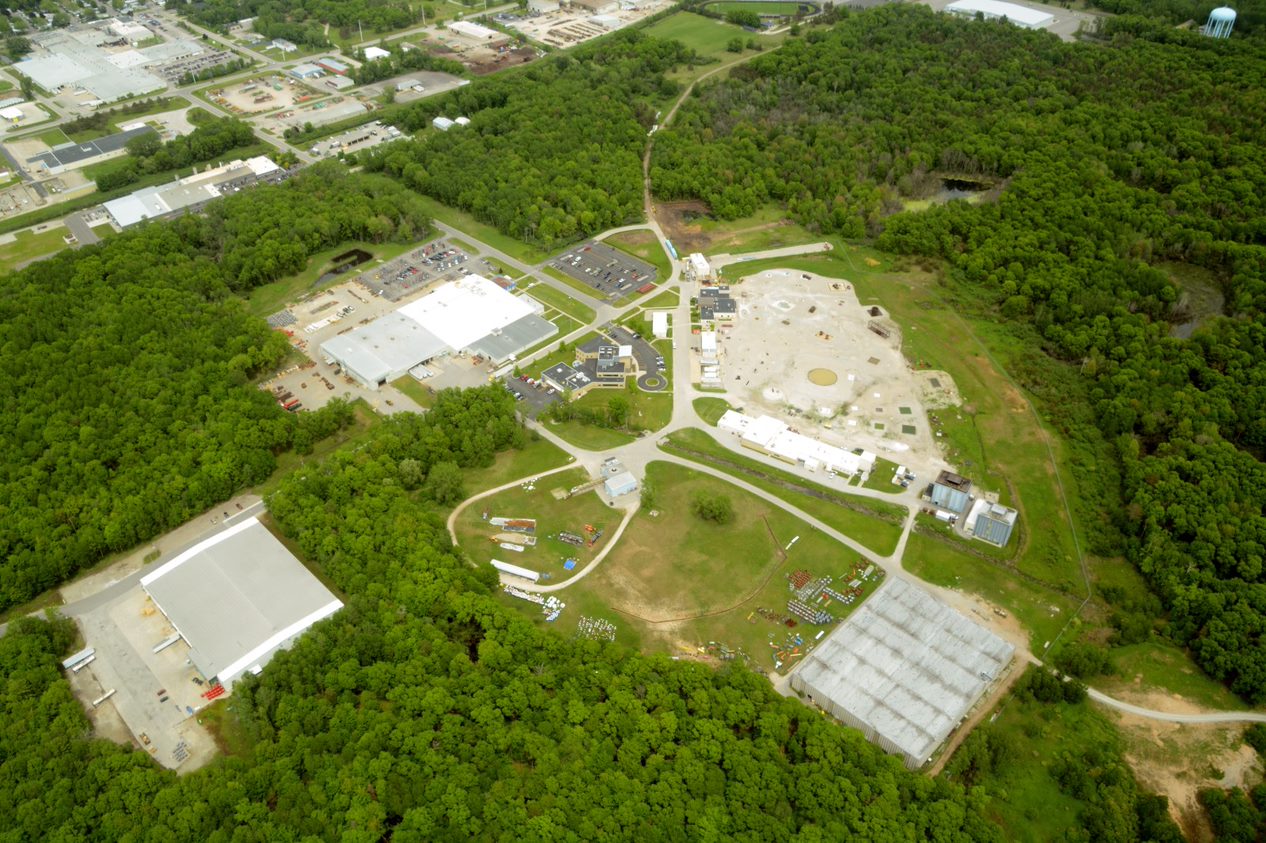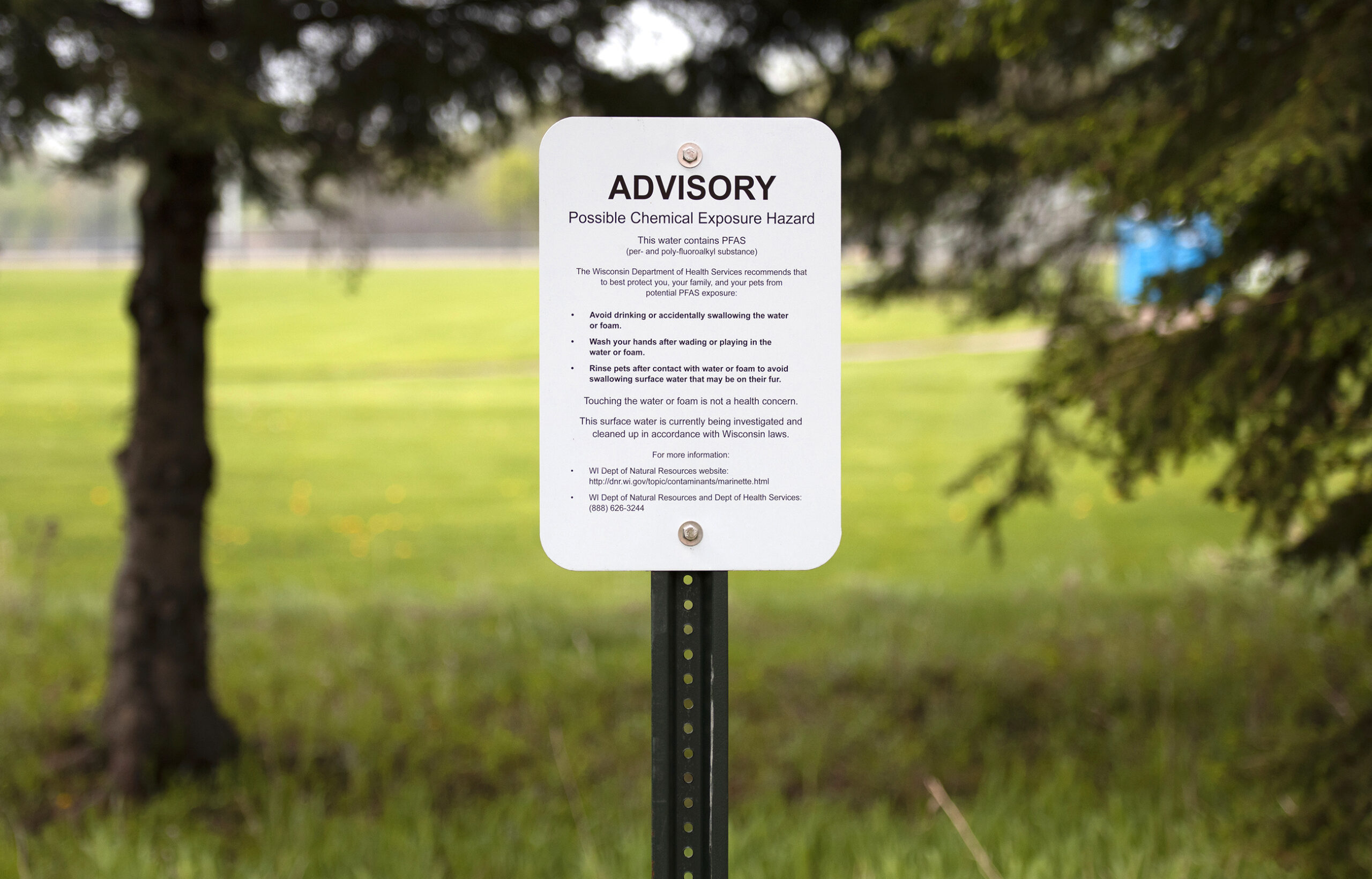The Wisconsin Department of Natural Resources has formed a new team to address PFAS contamination linked to a Marinette manufacturer of firefighting foam, which the agency says has resulted in the largest, most complex environmental investigation and cleanup in the state’s history.
The team will focus solely on a Tyco Fire Products investigation and remediation of so-called forever chemicals known as PFAS that have been linked to Tyco facilities. Tyco, a subsidiary of Johnson Controls International, has been investigating contamination stemming from its fire training center in Marinette.
Multiple programs within the Wisconsin DNR have been involved in efforts to investigate the extent of contamination in the Marinette and Peshtigo area, according to Darsi Foss, administrator of the agency’s environmental management division. Foss said PFAS contamination linked to Tyco has resulted in concerns over a variety of media or environmental surroundings, including water, fish, and wildlife.
News with a little more humanity
WPR’s “Wisconsin Today” newsletter keeps you connected to the state you love without feeling overwhelmed. No paywall. No agenda. No corporate filter.
“It’s just the multimedia nature of this one and also the multiple communities and it’s a new contaminant,” said Foss. “I think that’s why we’re kind of saying this is really a complex site.”
Foss likened the scope of PFAS contamination in Marinette to that of contamination that occurred in the Lower Fox River. Federal, state and tribal officials recently hailed the completion of the more than $1 billion cleanup of sediments there contaminated with PCBs or polychlorinated biphenyls. The manmade chemicals were used to make carbonless copy paper by mills along the river.
The cleanup is considered one of the largest and most expensive in the nation.
“I just think the multimedia nature of the PFAS issue and just the unknown nature of how PFAS moves in the environment or doesn’t, it makes it a little more challenging than dealing with the PCBs,” said Foss.
PFAS, shorthand for perfluoroalkyl and polyfluoroalkyl substances, have prompted growing concerns over their impact on public health. The substances don’t easily break down in the environment, and they’re found in everyday products ranging from firefighting foam to nonstick cookware. The chemicals have been detected across the state at more than 30 sites and cities like Superior, Marinette, Milwaukee and Madison.
The DNR has hired an additional staff position to work as part of the team, which will allow the agency to more quickly review documents and address issues that arise. She noted many of the agency’s project managers work on dozens of cases at one time.
Fraser Engerman, a spokesman for Johnson Controls, said in a statement that they welcomed the additional resources as they continue to work with the agency on plans to remove PFAS in the Marinette and Peshtigo area.
“We have made progress, and Tyco remains committed to providing safe, clean drinking water for the residents in these communities,” wrote Engerman. “We look forward to continuing our work with the WDNR.”
The agency is in the process of working with environmental consultant Wood Environment and Infrastructure Solutions after Tyco refused to sample 500 private wells in an expanded area beyond its fire training facility. The DNR plans to conduct sampling and seek reimbursement from the company. Tyco has disputed any ties to contamination in areas beyond its facility, saying the agency should examine other sources of contamination.
Last year, Johnson Controls said it set aside $140 million for cleanup of pollution from firefighting foam at its properties.
The company has also spent millions to help the city of Marinette get rid of treated sewage sludge contaminated with PFAS and update its sewer lines running to the city’s wastewater treatment plant. Tyco has also committed around $10 million to construct a municipal water line to provide safe drinking water.
Tyco recently wrapped up sampling of wells near farm fields in the Marinette and Peshtigo area, saying the vast majority had levels of PFAS below the threshold federal officials say may be harmful to human health.
The state is currently in the midst of a lengthy process to develop standards to regulate PFAS in groundwater, surface water and drinking water. The U.S. Environmental Protection Agency has not yet issued an enforcement standard for the chemicals, and it could be years before a threshold is in place for drinking water and groundwater.
The DNR referred Johnson Controls and Tyco to the Wisconsin Department of Justice in May last year, after the company failed to report any release of PFAS to the agency when the chemicals were first discovered in 2013. Company officials have said they believed contamination had not migrated off site.
Wisconsin Public Radio, © Copyright 2026, Board of Regents of the University of Wisconsin System and Wisconsin Educational Communications Board.



